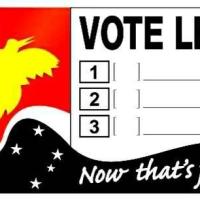
With the extraordinary preliminary election statistics revealing that the PNG Electoral Commission has already processed 4329 candidates, it is only fair to assume that a handful of these intending politicians will be sourced from the folds of the church.
Religion and the church, particularly the Catholic church, has had a long association with politics not just in PNG but the world over.
In April, the ongoing issue of ordained Catholic priests contesting elections in PNG was raised and discussed by the Episcopal Conference of Papua New Guinea and Solomon Islands which is chaired by Archbishop John Ribat of Port Moresby.
After consideration, the conference decided to remind all priests in the region that no bishop in Papua New Guinea or Solomon Islands has ever given or will ever give permission to one of his priests to enter politics.
In a signed letter forwarded onto the priesthood, Archbishop Ribat wrote:
“Unfortunately, once again, some of our brother priests are planning to run for political office in the 2012 Papua New Guinea National Election.
This is a great disappointment for us bishops and for the majority of our Catholic people. We believe that most priests, religious and lay people share our disappointment: the choice by a priest to enter politics is a betrayal of the people, like in the Gospel story (Jn 10, 12-13) in which a shepherd abandons the flock entrusted to him”.
Archbishop Ribat, on behalf of the bishops, recognized the importance of political commitment but reiterated that priesthood and politics don’t mix:
“It is entirely appropriate that qualified Catholic lay people represent the Church through direct political involvement and thereby find creative ways to apply the Church’s social teaching in shaping specific policies that promote the common good.
However, running for public office, as well as to actively campaign for a political party or candidate, is contrary to the vocation of the priesthood”.
The Catholic church, despite their objection to priests standing for elections, have produced some noteworthy PNG politicians – including former Governor of Western Highlands Province Father Robert Lak, current Governor of Simbu Province Father John Garia, and most notably, the current President of the Autonomous Region of Bougainville and co-writer of the Constitution of Papua New Guinea John Momis.
It is interesting to note that although the Catholic bishops have declared that a priest is automatically suspended from their active duties for two years once they have given notice of their intention to contest elections (even if they are unsuccessful), they still retain their title and profession.
On commentating on the Church’s stance Robert Losema, spokesman for PNG and Solomon Islands Catholic Bishops’ Conference, stated:
“They [priests] will not be able to perform their ministerial roles as pastors. They’re actually suspended as soon as they stand for public office and are not allowed to perform their rituals in terms of ministers.
They are still priests, still ordained ministers, but they are suspended from performing their responsibilities, particularly in terms of the rituals that they perform as priests”.
Father Robert Lak, Father John Garia and John Momis all opted to initially run for public office with their respective titles on campaign posters and ballot forms, with only John Momis now no longer actively using his title after seeking an official dispensation in 1993 to leave the priesthood (after 21 years as a Member of Parliament).
Father Garia, who will be defending his Simbu regional seat in the upcoming elections, has acknowledged that he had already been suspended from the Church when he announced his intention to contest the Simbu Provincial seat in 2007, but stated:
“My people know I am a good priest and when I became governor they believed that I would care for them and bring them the services they need. I am a priest, of course I will go back”.
It is this sort of indistinguishable perspective held by many a priest on the similar roles of a priest and a politician that is concerning the Church.
In 2002 the Bishop of Kerema, Paul Marx, sacked Father Phillip Sivi for lying when he told the Bishop he had not nominated to contest the elections. Father Sivi said it was the people’s wish that he enter politics:
“And the wish of the people will always override that of a bishop. It is a non-issue, as a politician, like a priest of the church, serves the people”.
According to Catholic law, the Code of Canon Law (#285) states that, “Clerics are forbidden to assume public offices which entail a participation in the exercise of civil power”.
Even if allowed by local church authorities, there are a number of modern examples where Pope John Paul II has called upon priests who hold public office to step down or resign from the clerical state.
With new media reports describing the position of more priests intending to contest the elections using their clerical titles, it is time for the Catholic Bishops to consider also adding the extra penalty of stripping priest-politicians off their titles and profession.
For when does a priest stop being a priest when he becomes a politician?























Your Comments